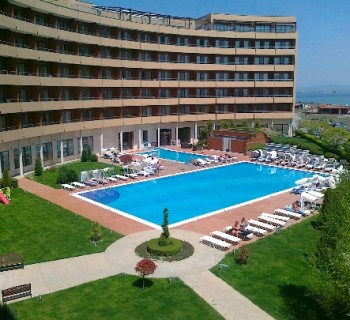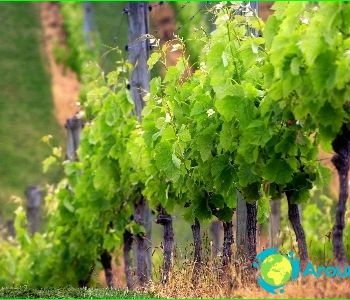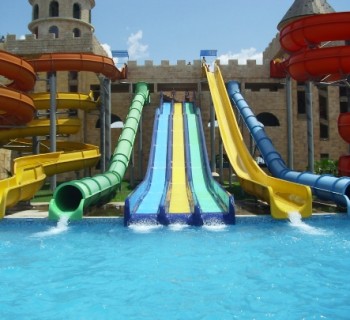Coat of arms of Bulgaria
On the map of Europe, you can find more than one country, the main official symbol of which depicts a formidable lion, symbolizing strength and power. The modern coat of arms of Bulgaria contains not one, but three lions, one is depicted directly on the shield, the others support the shield on both sides. Unfortunately, after the Second World War, the country, which became a member of the Warsaw Pact and submitted to Moscow, abandoned this symbol. The second coming of lions to the Bulgarian coat of arms took place in 1991.
Solemn and symbolic
The main state symbol of Bulgaria looks too pretentious, especially in comparison with its closest neighbors to the east. But, since the lion is even the national currency, there is nothing surprising in the appearance of beautiful predators..
For Bulgarians, the selection of colors was also important. The shield itself is scarlet, the lion depicted on it is golden. This composition is crowned with the historical crown of Bulgaria, which is also called the crown of the king of the Second Bulgarian Kingdom. Five crosses are depicted on it, one more - above.
Two lions, also executed in gold color, hold a shield on both sides. They seem to stand on the green branches of an oak tree with golden hearths. Below the composition is decorated with a ribbon with the country's motto written.
Twisty story
Lions, in one form or another, have always been present on the coats of arms, seals and standards of the Bulgarian princes or kings. The very first lion recorded in documents dates back to 1294; in the first part of the Lord Marshal's scroll, a description of the coat of arms of the king of Bulgaria was given. The description contains a silver lion topped with a golden crown.
During the reign of Ivan Shishman (XIV century), his personal guard had shields decorated with the image of three red lions, din over one. This was reported by an Arab traveler, and now this record can be seen in the National Library of Morocco. In 1595, the number of lions was reduced to one, which was depicted in red, standing on its hind legs in the center of the shield. In the 18th century, the color of the animal changed from menacing paint to solemn gold. But the shield, on the contrary, became dark red, scarlet.
From 1881 to 1927, the coat of arms of the principality of Bulgaria began to look like a royal, since a purple mantle, lined with ermine, was added, as well as state flags. With a change in the form of government in 1927, the form of the official symbol was approved, which coincided with the personal coat of arms of Tsar Ferdinand I.
The communist period in Bulgaria, which began in 1944, brought about a radical change in the official symbols. An emblem appeared instead of the coat of arms. The golden lion was also present in the new image, but symbols imposed by neighbors from the east were added, wheat ears, a gear, a star.
With the return of independence in 1989, a few years later, the beloved lions took their places on the coat of arms of Bulgaria.


